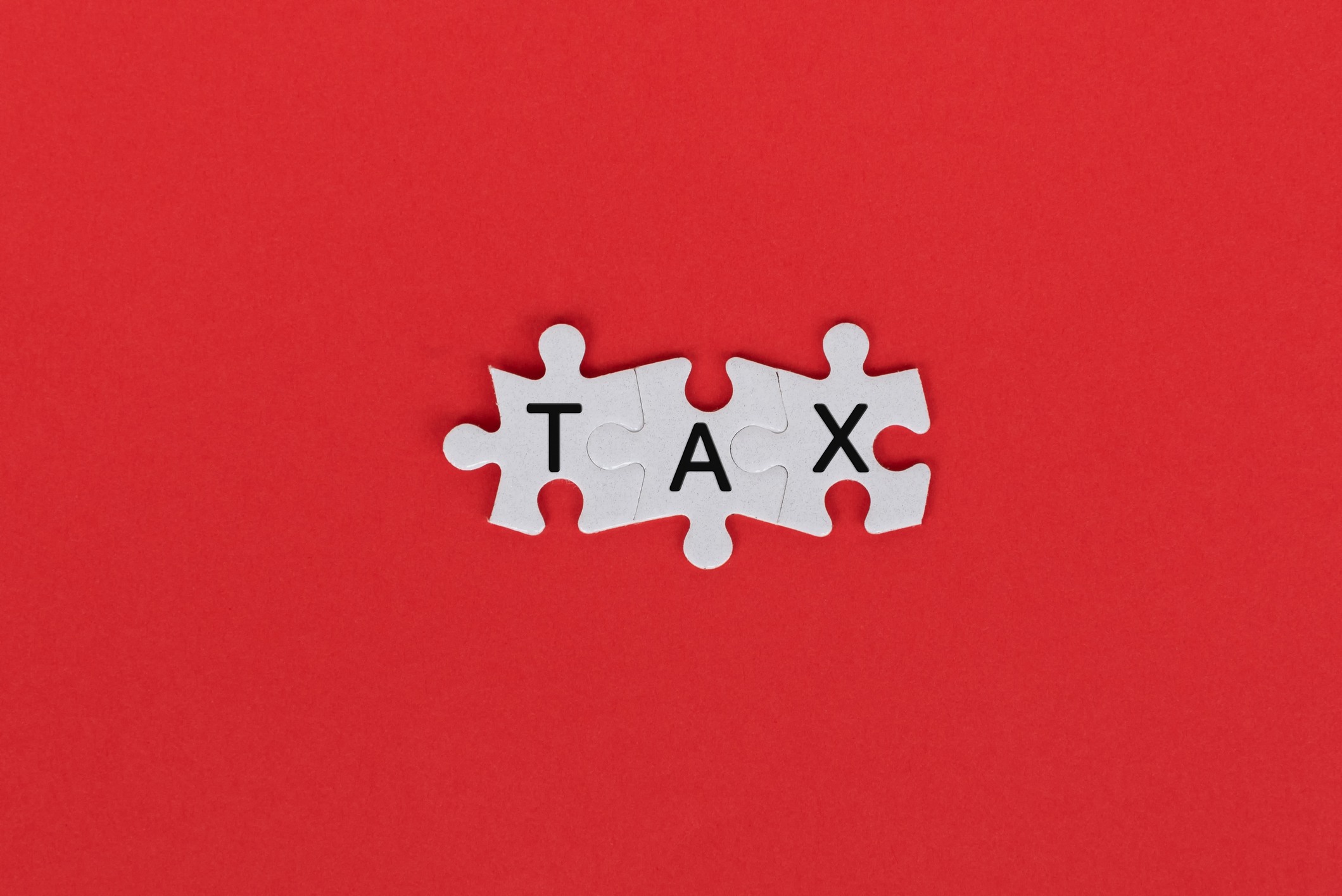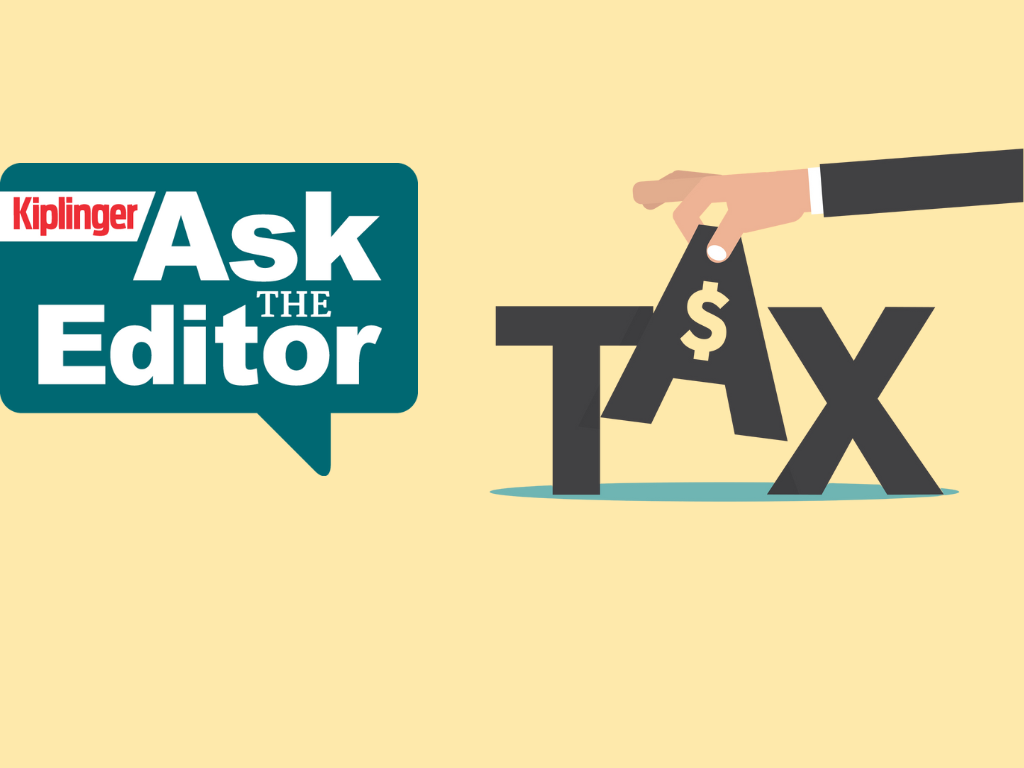Capital Gains Tax Rates 2025 and 2026: What You Need to Know
The tax rate for a capital gain depends on the type of asset, your taxable income, and how long you held the property sold.

Rocky Mengle

Profit and prosper with the best of Kiplinger's advice on investing, taxes, retirement, personal finance and much more. Delivered daily. Enter your email in the box and click Sign Me Up.
You are now subscribed
Your newsletter sign-up was successful
Want to add more newsletters?

Delivered daily
Kiplinger Today
Profit and prosper with the best of Kiplinger's advice on investing, taxes, retirement, personal finance and much more delivered daily. Smart money moves start here.

Sent five days a week
Kiplinger A Step Ahead
Get practical help to make better financial decisions in your everyday life, from spending to savings on top deals.

Delivered daily
Kiplinger Closing Bell
Get today's biggest financial and investing headlines delivered to your inbox every day the U.S. stock market is open.

Sent twice a week
Kiplinger Adviser Intel
Financial pros across the country share best practices and fresh tactics to preserve and grow your wealth.

Delivered weekly
Kiplinger Tax Tips
Trim your federal and state tax bills with practical tax-planning and tax-cutting strategies.

Sent twice a week
Kiplinger Retirement Tips
Your twice-a-week guide to planning and enjoying a financially secure and richly rewarding retirement

Sent bimonthly.
Kiplinger Adviser Angle
Insights for advisers, wealth managers and other financial professionals.

Sent twice a week
Kiplinger Investing Weekly
Your twice-a-week roundup of promising stocks, funds, companies and industries you should consider, ones you should avoid, and why.

Sent weekly for six weeks
Kiplinger Invest for Retirement
Your step-by-step six-part series on how to invest for retirement, from devising a successful strategy to exactly which investments to choose.
Capital gains taxes are levied on profits from the sale of assets like stocks, mutual funds, and real estate. The rate at which these gains are taxed depends on your taxable income and how long you've held the asset. But keep in mind that capital gains tax rates are generally lower than the tax rates for ordinary income, like wages.
Let's examine the 2025 rates for long-term capital gains (assets held for more than a year) and highlight the changes from the prior year's rates. We will also review the new IRS threshold brackets for 2026 (for returns you'll file in early 2027).
Additionally, we will discuss short-term rates (ordinary income tax rates) and rates for specific capital gains tax situations, including those applicable to collectibles and the Net Investment Income Tax.
From just $107.88 $24.99 for Kiplinger Personal Finance
Become a smarter, better informed investor. Subscribe from just $107.88 $24.99, plus get up to 4 Special Issues

Sign up for Kiplinger’s Free Newsletters
Profit and prosper with the best of expert advice on investing, taxes, retirement, personal finance and more - straight to your e-mail.
Profit and prosper with the best of expert advice - straight to your e-mail.
Note: For a detailed overview of capital gains tax basics, see Kiplinger’s report: Capital Gains: What's Taxable and How to Calculate It.
Tax Tip: Realized vs. Unrealized Gains
It’s important to distinguish between "paper profits" and "realized gains."
Unrealized Gains: If your stock grows from $1,000 to $1,500, you have an unrealized gain of $500. You are technically wealthier, but you owe $0 in taxes as long as you continue to hold the asset.
Realized Gains: The capital gains tax is only triggered once you sell the asset and "realize" the profit.
Long term capital gains tax rates
What are the long-term capital gains tax thresholds?
Long-term capital gains tax rates apply to assets held for more than a year. These rates are structured to encourage long-term investment.
The rates are 0%, 15%, or 20%, depending on your income level; essentially, the higher your income, the higher your rate. The income thresholds for long-term capital gains are adjusted annually for inflation.
If you compare the capital gains tax rates from 2025 and 2026 below, you can see the impact of inflation adjustments.
The 2025 capital gains tax thresholds increased by about 2.8% across various filing statuses from the prior year. (You'll use these for tax returns you file in early 2026.)
For instance, with single filers, the 0% rate for the 2025 tax year applied to incomes up to $48,350 for 2025, up from the prior tax year threshold of $47,025.
The 20% rate threshold for 2025 taxes, single filers, rose substantially from $518,900 in 2024 to $583,400.
For married couples filing jointly:
- The 0% rate threshold increased by 2.82%, from $94,050 in 2024 to $96,700 for 2025.
- The 20% rate threshold rose from $588,750 to $600,050.
Head of household filers also experienced changes:
- The 0% rate threshold increased by about 2.78%, from $63,000 last year to $64,750 for 2025.
- The 20% rate threshold jumped from $551,350 to $566,700.
These inflation adjustments are designed to prevent "bracket creep," where taxpayers might be pushed into higher tax brackets due to inflation rather than actual increases in real income.
2025 capital gains tax rate income thresholds
Here are the 2025 long-term capital gains income brackets. These represent an increase of about 2.8% from 2024 levels, which aligns with the inflation-adjusted federal income tax brackets for the 2025 tax year.
Capital Gains | Taxable Income | Taxable Income(Married Filing Separate) | Taxable Income(Head of Household) | Taxable Income |
0% | Up to $48,350 | Up to $48,350 | Up to $64,750 | Up to $96,700 |
15% | $48,351 to $533,400 | $43,351 to $300,000 | $64,751 to $566,700 | $96,701 to $600,050 |
20% | Over $533,400 | Over $300,000 | Over $566,700 | Over $600,050 |
2026 capital gains tax rate income thresholds
The IRS has released the 2026 long-term capital gains income brackets. (You'll use these numbers for tax returns normally filed in early 2027.)
Capital Gains | Taxable Income | Taxable Income(Married Filing Separate) | Taxable Income(Head of Household) | Taxable Income |
0% | Up to $49,450 | Up to $49,450 | Up to $66,200 | Up to $98,900 |
15% | $49,451 to $545,500 | $49,451 to $306,850 | $66,201 to $579,600 | $98,901 to $613,700 |
20% | Over $545,500 | Over $306,850 | Over $579,600 | Over $613,700 |
Short term rates
Short-term capital gains tax rates
Short-term capital gains are for assets held for one year or less. They are taxed at the same rates as ordinary income. As a result, depending on your taxable income and tax bracket, these rates range from 10% to 37%.
Like long-term capital gains, ordinary federal income tax rates are adjusted yearly for inflation. For information, see 2025-2026 Federal Tax Brackets and Income Tax Rates.
Other considerations
What are the tax rates for collectibles, unrecaptured Section 1250 gain, and qualified small business stock?

How does the 3.8% Net Investment Income Tax (NIIT) affect high-income capital gains?
In addition to the capital gains tax, a 3.8% Net Investment Income Tax (NIIT) might apply to some taxpayers. This surtax is part of the Affordable Care Act (ACA) and is sometimes called “the Medicare surtax.”
It applies to those with modified adjusted gross income (MAGI) above certain thresholds:
- $200,000 for single filers
- $250,000 for married couples filing jointly
- $125,000 for married individuals filing separately
Net investment income includes taxable interest, dividends, capital gains, passive rents, annuities, and royalties. The surtax is calculated using Form 8960.
Is the 3.8% NIIT owed on my entire capital gain? The answer to this is "no." You only owe the tax on the portion of your investment income that exceeds the threshold (e.g., $200,000 for singles or $250,000 for couples). So, if your gain is $50,000 but you only exceed the income limit by $10,000, you only pay the 3.8% tax on that $10,000 — not the full $50,000.
Note: Unlike with ordinary federal income tax brackets, these $200k/$250k thresholds are not adjusted for inflation. As a result, more taxpayers are pushed into NIIT territory every year, even if their "real" purchasing power hasn't changed.
For more information, see Medicare Tax: Five Things Every Worker Needs to Know, and What is Net Investment Income Tax and Who Pays?
Collectibles tax rate: Are collectibles always taxed at 28%?
Gains from selling collectibles (art, antiques, precious metals, etc.) are taxed at a maximum rate of 28%. This rate only affects long-term gains; short-term gains from collectibles are taxed as ordinary income.
Note: For this special rule, the IRS says a "collectible" can be antiques, a work of art, a stamp, a coin, a bottle of wine or other alcoholic beverage, gold or other precious metal, a gem, a historic object, or another similar item.
If you sell an interest in a partnership, S corporation, or trust, any gain from that sale attributable to the unrealized appreciation in the value of collectibles is also treated as gain from the sale of collectibles.
For more information, see Kiplinger's report Here's How Collectibles Are Taxed.
Capital gains tax rate for Qualified Small Business Stock
Some or all of your gain may be tax-free for qualified small business stock (QSBS) held for at least five years. For the remaining gains, a maximum tax rate of 28% applies. (This doesn't affect short-term gains taxed at ordinary income rates.)
As with the 28% rate for collectibles, if your ordinary tax rate is below 28%, that rate will apply to taxable QSBS gain.
Capital gains tax rate for depreciation
If you sell real estate with previously claimed depreciation deductions, you might face a capital gains tax of up to 25% on the unrecaptured depreciation.
Note: This taxable amount is known as "unrecaptured Section 1250 gain" (named after the tax code section covering gain from the sale or other disposition of certain depreciable real property).
- The rest of the long-term gain is taxed at standard long-term rates.
- The 25% rate applies only to long-term gains.
FAQs About Capital Gains Tax Rates
1. Do states have their own capital gains tax rates?
Most states (like California and New York) treat capital gains as ordinary income, meaning you pay your standard state income tax rate on those profits. But a few have special rates or no income tax at all.
For example, New Hampshire and Florida are among the nine no-income tax states. But Washington state has a controversial capital gains tax that only targets high-value capital gains.
Check your state Department of Revenue for details. And for more information, see States With Low and No Capital Gains Tax.
2. How can I minimize my capital gains tax liability?
As mentioned, the most effective strategy is to hold assets for more than one year to qualify for long-term rates (0%, 15%, or 20%), which are lower than ordinary income rates.
But also consider strategies like tax-loss harvesting, holding investments for more than one year, taking advantage of tax-advantaged accounts like IRAs and 401(k)s, and charitable giving.
Tax-Loss Harvesting: Sell underperforming assets to offset the gains from your "winners." You can also use up to $3,000 of excess losses to offset your regular salary.
Retirement Accounts: Invest through a Roth IRA or 401(k) to allow your investments to grow tax-free or tax-deferred.
Charitable Giving: Donating appreciated stock directly to a charity allows you to avoid the capital gains tax while claiming a deduction for the full market value.
3. Are capital gains from cryptocurrency taxed differently?
The IRS treats cryptocurrency as "property," so capital gains from crypto sales are taxed at the same rates as other investments like stocks or real estate, depending on your holding period and income.
The Rule: If you hold crypto for one year or less, your profits are short-term gains (taxed at rates up to 37%). If you hold for more than a year, you qualify for long-term rates (0%–20%).
2026 Update: As of 2026, the IRS is implementing stricter reporting via Form 1099-DA, which means crypto brokers will now report your transactions directly to the government, making accurate record-keeping critical.
4. What is the wash sale rule, and does it apply to capital gains?
The wash sale rule prevents you from claiming a loss on a security if you purchase a substantially identical security within 30 days before or after the sale. The rule applies to losses, not gains, but it's important when dealing with tax loss harvesting strategies.
The Penalty: If you trigger a wash sale, your loss is disallowed for the current year. Instead, the loss is added to the "cost basis" of your new shares, delaying your tax benefit until you sell the new position.
Crypto Note: As of early 2026, the wash-sale rule primarily applies to stocks and securities. However, watch for any IRS updates that could extend the rule to digital assets.
5. Did the new 2025 Trump tax law change capital gains rates?
No. The law, often referred to by President Donald Trump as the "big beautiful bill," didn't change capital gains tax rates. However, the massive tax and spending bill, signed into law on July 4, 2025, makes numerous changes to the tax landscape.
For example, the 2025 Trump/GOP tax law permanently extended the lower ordinary income tax brackets from the 2017 TCJA and increased the standard deduction ($16,100 for singles; $32,200 for joint filers in 2026).
Impact: While the rates stayed the same, the new tax law changed the income thresholds where those rates kick in due to annual inflation adjustments. So, for 2026, a married couple can earn up to $98,900 in total taxable income and still pay 0% in federal capital gains tax.
Bottom Line
Understanding capital gains tax rates is important for financial planning. If you expect significant gains from investments, it's a good idea to calculate your potential tax liability and plan accordingly.
Additionally, stay informed about annual changes in tax rates and thresholds to make the most of your investments.
Read More
- The Wash Sale Rule: 5 Things to Know
- How the IRS Taxes Your Collectibles
- Capital Gains Tax Exclusion for Homeowners: What to Know
- States With Low and No Capital Gains Tax
Profit and prosper with the best of Kiplinger's advice on investing, taxes, retirement, personal finance and much more. Delivered daily. Enter your email in the box and click Sign Me Up.

Kelley R. Taylor is the senior tax editor at Kiplinger.com, where she breaks down federal and state tax rules and news to help readers navigate their finances with confidence. A corporate attorney and business journalist with more than 20 years of experience, Kelley has helped taxpayers make sense of shifting U.S. tax law and policy from the Affordable Care Act (ACA) and the Tax Cuts and Jobs Act (TCJA), to SECURE 2.0, the Inflation Reduction Act, and most recently, the 2025 “Big, Beautiful Bill.” She has covered issues ranging from partnerships, carried interest, compensation and benefits, and tax‑exempt organizations to RMDs, capital gains taxes, and energy tax credits. Her award‑winning work has been featured in numerous national and specialty publications.
-
 Quiz: Do You Know How to Avoid the "Medigap Trap?"
Quiz: Do You Know How to Avoid the "Medigap Trap?"Quiz Test your basic knowledge of the "Medigap Trap" in our quick quiz.
-
 5 Top Tax-Efficient Mutual Funds for Smarter Investing
5 Top Tax-Efficient Mutual Funds for Smarter InvestingMutual funds are many things, but "tax-friendly" usually isn't one of them. These are the exceptions.
-
 AI Sparks Existential Crisis for Software Stocks
AI Sparks Existential Crisis for Software StocksThe Kiplinger Letter Fears that SaaS subscription software could be rendered obsolete by artificial intelligence make investors jittery.
-
 I'm an Opportunity Zone Pro: This Is How to Deliver Roth-Like Tax-Free Growth (Without Contribution Limits)
I'm an Opportunity Zone Pro: This Is How to Deliver Roth-Like Tax-Free Growth (Without Contribution Limits)Investors who combine Roth IRAs, the gold standard of tax-free savings, with qualified opportunity funds could enjoy decades of tax-free growth.
-
 I'm a Real Estate Investing Pro: This Is How to Use 1031 Exchanges to Scale Up Your Real Estate Empire
I'm a Real Estate Investing Pro: This Is How to Use 1031 Exchanges to Scale Up Your Real Estate EmpireSmall rental properties can be excellent investments, but you can use 1031 exchanges to transition to commercial real estate for bigger wealth-building.
-
 Ask the Editor, February 13: More Questions on IRAs
Ask the Editor, February 13: More Questions on IRAsAsk the Editor In this week's Ask the Editor Q&A, Joy Taylor answers questions on IRAs
-
 4 Pro Tips for Successfully Scaling the Medicare Mountain
4 Pro Tips for Successfully Scaling the Medicare MountainAttempting to conquer Medicare without a plan is risky. The safest route requires a thorough understanding of your options and never leaves decisions to chance.
-
 For More Flexible Giving, Consider Combining a Charitable Remainder Trust With a Donor-Advised Fund
For More Flexible Giving, Consider Combining a Charitable Remainder Trust With a Donor-Advised FundIf a charitable remainder trust puts too many constraints on your family's charitable giving, consider combining it with a donor-advised fund for more control.
-
 How to Open Your Kid's $1,000 Trump Account
How to Open Your Kid's $1,000 Trump AccountTax Breaks Filing income taxes in 2026? You won't want to miss Form 4547 to claim a $1,000 Trump Account for your child.
-
 In Arkansas and Illinois, Groceries Just Got Cheaper, But Not By Much
In Arkansas and Illinois, Groceries Just Got Cheaper, But Not By MuchFood Prices Arkansas and Illinois are the most recent states to repeal sales tax on groceries. Will it really help shoppers with their food bills?
-
 These Thoughtful Retirement Planning Steps Help Protect the Life You Want in Retirement
These Thoughtful Retirement Planning Steps Help Protect the Life You Want in RetirementThis kind of planning focuses on the intentional design of your estate, philanthropy and long-term care protection.